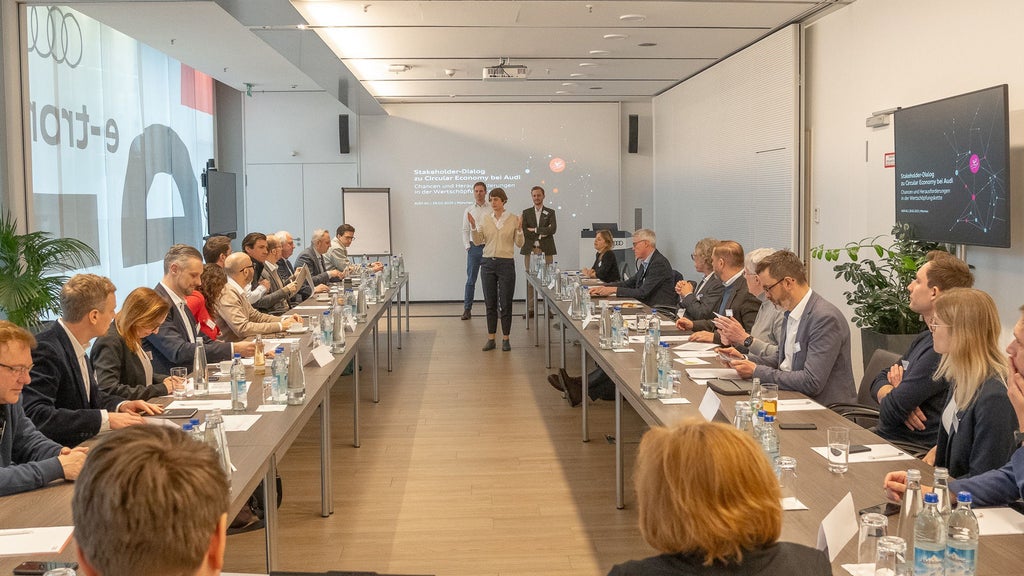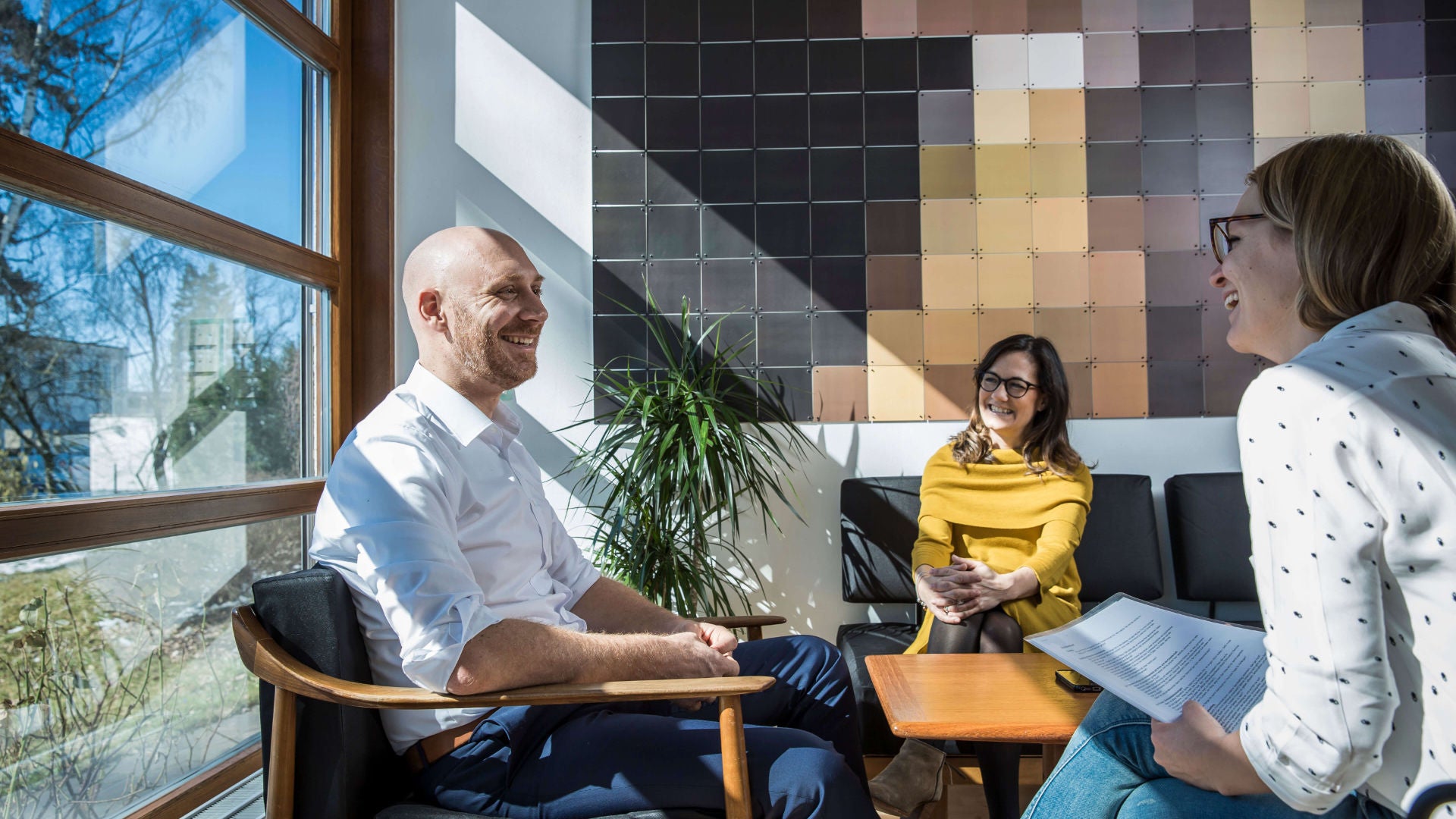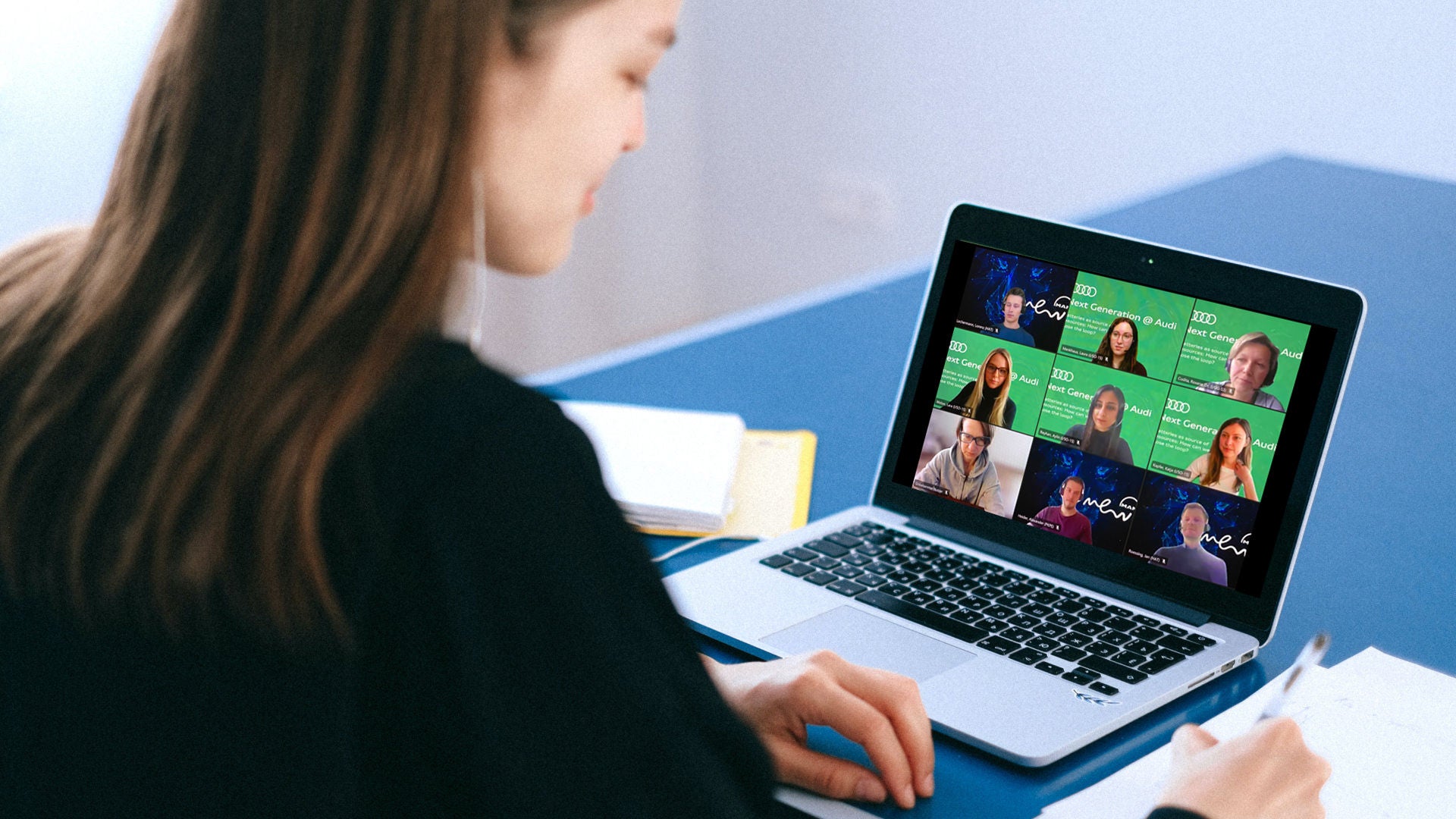
Stakeholder Management
An honest assessment and an external perspective are essential for the continuous development of Audi’s sustainability strategy. Engagement with relevant stakeholders* therefore plays a central role. We enter into dialogue with them at various levels and thus receive important impetus for our long-term strategic sustainability work.
Audi wants to use various stakeholder management tools (see infographic) to learn about the interests and needs of its stakeholders* in detail. With this knowledge, the company can take even better account of social and societal requirements.
Stakeholder engagement: five steps for optimal stakeholder involvement.
Stakeholder engagement: five steps for optimal stakeholder involvement.
Double materiality analysis for more transparency
It is important to Audi to keep an eye on the opportunities and risks of its actions in order to strengthen its positive influences on the environment and society and to keep negative impacts on the company to a minimum.
The materiality analysis that Audi has been conducting for over 11 years serves to determine these topics, since it creates transparency on relevant ESG topics in the context of sustainability. A significant change is the introduction of the concept of double materiality. This principle requires companies to consider the materiality of sustainability topics from two perspectives. The inside-out perspective (impact materiality) is used to determine the actual and potential positive and negative impacts of the company’s activities on various sustainability topics.
The outside-in perspective (financial materiality) is used to determine the opportunities and risks that sustainability topics pose for the company’s financial performance. Audi uses the double materiality analysis as a strategic tool. It makes a contribution to the regular review of objectives and resource management and therefore to the further development of the company. It provides an even better understanding of the interaction between economic success and sustainable action, thereby helping to mesh these two aspects more closely.
Targeted exchange
In addition, Audi uses different dialogue formats and one-to-one discussions to find out what motivates stakeholders. The company tries to find the right format for stakeholders depending on the topics addressed. These include dialogue formats and one-to-one discussions as well as multi-stakeholder events.
The objective of the exchange is, firstly, to expand and maintain the stakeholder network; secondly, a focus on content to increase ESG performance and, thirdly, to strengthen stakeholder acceptance of the transformation path that Audi is pursuing.
Appreciation, respect and trust form the basis for honest feedback and fair collaboration. Audi strengthens this through proactive communication on the one hand, and through transparency with regard to the results on the other.

Stakeholder dialogue on circular economy at Audi, 2025.
Stakeholder dialogue on circular economy at Audi, 2025.
Important change of perspective
What type of feedback does Audi hope to get from the dialogue formats? What helps move the company forward? What is the “outside-in perspective” on issues? What suggestions do the experts have? Audi wants to learn, examine perspectives, gather suggestions and build trust.
“We build trusting relationships with our stakeholders and take account of their feedback in our strategic alignment in order to promote social and ecological progress together. We communicate our transformation process regularly and transparently.”
Johanna Klewitz, Head of Sustainability Strategy at Audi

Participation in external initiatives and organizations
Audi discusses ecological, economic and social issues in partnership with stakeholders through a variety of initiatives, federations and work groups. The following engagements, for example, demonstrate how far-reaching and effective this involvement is:
Global Battery Alliance: Audi subscribes to the values of the Global Battery Alliance of the World Economic Forum. The alliance consisting of public and private-sector partners from along the entire battery supply chain strives to ensure that both social and environmental sustainability aspects are taken into account in the value chain for the raw material used in batteries. To this end, the Global Battery Alliance is working on issues such as the conditions for mining raw materials, sustainable recycling concepts in the spirit of a circular economy, and innovations that promote battery sustainability. Audi has been a member of the cooperation platform since 2017.
Aluminium Stewardship Initiative: Meanwhile Audi’s membership in the Aluminium Stewardship Initiative (ASI) dates all the way back to 2013. The ASI came about as a result of various stakeholders in the aluminum industry joining forces. The aim behind the initiative was to create greater sustainability and transparency in the aluminum sector and to promote the responsible extraction, processing and use of aluminum. Audi was the first automotive OEM in the world to attain an ASI Performance Certification and ASI Chain of Custody Certification. The “Chain of Custody” certificate awarded by the Aluminium Stewardship Initiative was bestowed again in 2024. The “Performance Standard” was recertified in 2025.
UN Global Compact: In March 2022, after an interruption, Audi rejoined the UN Global Compact, the world’s largest initiative for sustainable corporate governance. This membership in one of the most active platforms for dialogue among industry, civil society and politics is an important pillar of stakeholder management for Audi.
Alliance for Water Stewardship (AWS): In 2023, Audi became the first premium car manufacturer to become a member of the Alliance for Water Stewardship (AWS). This global network of companies, NGOs and public-sector bodies is committed to the responsible use of water resources across the value chain. The AWS standard is an internationally applicable set of rules for companies and organizations aiming to use water as efficiently as possible and with due consideration of all relevant interest groups in the respective catchment area. In 2023, the production facility in San José Chiapa (Mexico) was the first car manufacturing plant in the world to be certified by the AWS for its considerate use of the resource water. In 2018, Audi became the automotive industry’s first premium manufacturer worldwide to produce vehicles without any wastewater in Mexico.
Cross-sector exchange
The following list of memberships and activities exemplifies the company’s dialogue with industry, politics, science and society. However, it contains only a small sample of the wide range of initiatives we are involved in – many of which also reflect the interests of the company’s stakeholders. The list is based on the criteria for Environmental, Social and Governance (ESG) as well as strategy-related topics in order to illustrate the connection to the topics reported on:


